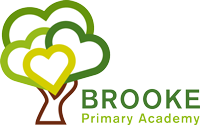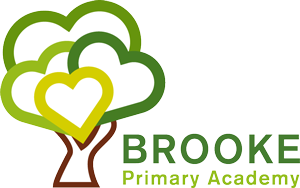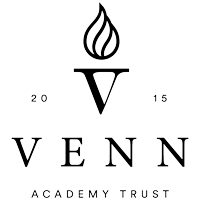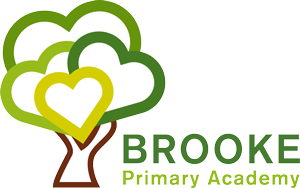
A Venn Academy Trust School
– Together we will…
Venn is a pioneering academy trust, committed to building educational environments where all pupils are inspired to become lifelong learners who achieve the very highest standards possible.
Collaborating with all partners, the Trust works with its unique settings to create world class learning experiences for all.

History
Ambition
At Brooke Primary Academy, children will:
- develop a well-rounded knowledge of history
- understand the chronology of British history and worldwide civilisations (aren’t planned chronological)
- build on their local historical understanding and how that impacts the community
- think like a historian – critically and analytically
- develop a sense of pride in their locality and its past, through a love of history
Implementation
The curriculum is led and overseen by the History lead, who undertakes a regular programme of monitoring, evaluation and review. The celebration of good practice will contribute to our ongoing commitment to evolve and improve further. Our Venn partner schools enhance this approach, as we can draw upon a variety of experiences and expertise across the academy.
The teaching, learning and sequencing of the history curriculum enables and creates:
- a curriculum designed to ensure coverage and progression in all skills relating to History.
- KS1, the development of historical skills, which focus on the world around them and within living memory, before exploring events beyond living memory. This ensures a firm foundation for KS2 history.
- KS2, a History curriculum set out in chronological order to allow children to reference the previous events in time, and to refer to this prior learning year-on-year and within the year.
We have developed a progression of skills set out in order to build and develop the pupils’ chronological understanding; their knowledge and understanding of events, people and changes in the past; connections and historical links; differing interpretations of History; and, historical enquiry. Across the year groups, these skills will complement the deliberate development of long-term memory.
Impact
By the time pupils leave Brooke Primary Academy our children will be increasingly critical and analytical thinkers, making informed and balanced judgements based on their knowledge of the past. They will be developing an understanding of how historical events have shaped the world that they live in both nationally, internationally and locally.
Our children will develop enquiry skills to pursue their own interests within a topic, developing further questioning. Where applicable, children will have encountered/participated–in high-quality visits/visitors to further appreciate the impact of History. Children are to retain prior-learning and explicitly make connections between what they have previously learned and what they are currently learning.
Further information and resources
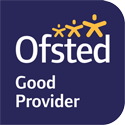
Positive Behaviour: Changes in how behaviour is managed have helped pupils reflect on their feelings and make better choices. This has resulted in positive behaviour during lessons and playtimes.

Overall Effectiveness: The school is rated “Good” in all categories, including quality of education, behaviour and attitudes, personal development, leadership and management, and early years provision.

Early Years Provision: The early years setting promotes positive relationships and collaboration among children. Adults model effective communication and use assessment well to engage children in their learning.

Curriculum and Learning: The curriculum is well-considered, building on previous learning to deepen understanding. While assessment systems need improvement, the school’s overall approach helps in identifying and supporting pupils’ needs.

Promotion of Values: Pupils learn about diversity and British values through various activities and demonstrate positive attitudes and respect for others. The school also encourages community involvement, such as the choir singing in residential homes and helping at the local food bank.

Governance and Leadership: Trustees and governors are skilled and committed, regularly visiting the school and maintaining an accurate picture of its operations to ensure continued improvement.

Reading and Phonics: The school is committed to ensuring all pupils learn to read. Effective training and support for teachers, along with appropriate reading materials and catch-up sessions, help pupils read accurately and confidently.

Safeguarding: The school has effective safeguarding arrangements, creating an open and positive culture that prioritises pupils’ interests.

Extracurricular Activities: There is a wide range of clubs available, such as football, rugby, forest school, and choir, which help develop pupils’ talents and interests.

School Environment: The academy is described as a warm and welcoming place where pupils feel safe and happy. Respectful and positive relationships are central to the school’s environment.

Support for SEND: The school effectively identifies and supports pupils with special educational needs and/or disabilities (SEND), involving parents in the assessment process and adapting lessons to help these pupils build new knowledge.

Anti-Bullying: Pupils respect each other, believe in the school’s values, and feel confident that any issues, including bullying, would be resolved quickly by adults.

High Expectations and Progress: The school sets high expectations for all pupils, which are being met. Parents appreciate the support and information provided by the staff and are pleased with the progress their children make.
